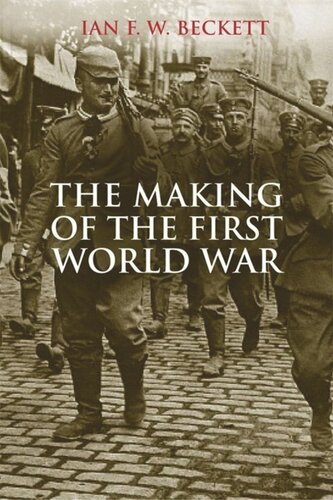

Most ebook files are in PDF format, so you can easily read them using various software such as Foxit Reader or directly on the Google Chrome browser.
Some ebook files are released by publishers in other formats such as .awz, .mobi, .epub, .fb2, etc. You may need to install specific software to read these formats on mobile/PC, such as Calibre.
Please read the tutorial at this link: https://ebookbell.com/faq
We offer FREE conversion to the popular formats you request; however, this may take some time. Therefore, right after payment, please email us, and we will try to provide the service as quickly as possible.
For some exceptional file formats or broken links (if any), please refrain from opening any disputes. Instead, email us first, and we will try to assist within a maximum of 6 hours.
EbookBell Team

4.3
58 reviewsNearly a century has passed since the assassination of Austria-Hungary's Archduke Ferdinand, yet the repercussions of the devastating global conflict that followed echo still. In this provocative book, historian Ian Beckett turns the spotlight on twelve particular events of the First World War that continue to shape the world today. Focusing on episodes both well known and scarcely remembered, Beckett tells the story of the Great War from a new perspective, stressing accident as much as strategy, the small as well as the great, the social as well as the military, and the long term as much as the short term.
The Making of the First World War is global in scope. The book travels from the deliberately flooded fields of Belgium to the picture palaces of Britain's cinema, from the idealism of Wilson's Washington to the catastrophic German Lys offensive of 1918. While war is itself an agent of change, Beckett shows, the most significant developments occur not only on the battlefields or in the corridors of power, but also in hearts and minds. Nor may the decisive turning points during years of conflict be those that were thought to be so at the time. With its wide reach and unexpected conclusions, this book revises—and expands—our understanding of the legacy of the First World War.